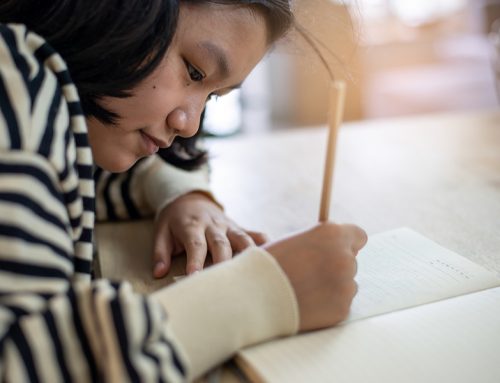Chinese can seem like a difficult challenge for many young children, especially for those who do not speak Chinese or have not put in the hours to build a strong foundation in it. What may seem simple to others might not be the same for them, as they struggle with the difficulty of mastering a new language alongside their peers.
Given our experience with teaching Chinese tuition in Singapore for many years, we share how beginners at Chinese or those who are weaker at the subject should approach learning and improve spelling and oral skills.
Spelling
Recognising and writing hinese letters can seem like the scariest thing to anyone struggling with the language. And we fully agree with it, as we understand that someone without the right foundation can struggle to make sense of how to write hundreds, if not thousands, of unique words.
Still, while we want our children and students to score well, it can often pressure them to pursue short-term and temporary solutions like memorising. Even while memorising, they do not internalise what they have seen and can’t apply it to other areas like compositions or oral.
Instead, we have learnt over the years to match them at their level (even if it means it’s currently a few levels below what they’re currently supposed to be) in order to build up their vocabulary and ability to remember how to write basic words. These words are then crucial for them to form sentences and make sense of the Chinese language. This gives them a bigger overall picture of what they are studying and how it can impact their composition and oral skills.
Oral
Afraid of stuttering and getting a blank mind whenever you want to say something in Chinese? Always thought scoring well for oral means including various complicated phrases or idioms? Actually, the difference between students who are good at oral and those who aren’t lies between two core skills. These two skills are the ability to converse in Chinese fluently and the ability to maintain a thorough train of thought – none of which are helped when you try to memorise complicated phrases without understanding how to utilise them properly.
Getting familiar with the language in our day-to-day can create a foundation for us to build better oral and conversational skills in the long run. In fact, we use various Chinese idioms sparingly, so it does not make sense to memorise tonnes of them in hopes of being able to use one or two during our oral examinations. Thus, the best bet is still to be comfortable with a natural conversational setting for our oral exams.
Conclusion – It All Boils Down To Basics
Building on what they know and strengthening it might mean more effort and time before seeing results, but these are results that will continue to compound as the weeks and months go by. Rather than forcing them to memorise the syllabus or hoping for them to have a natural instinct in their mother tongue, getting them to build their foundation can also grant them confidence as they see how much progress they are making over time.
Regardless, it also helps when students are guided by passionate and experienced teachers when they are enrolled in ‘O’ level or PSLE Chinese tuition. Not only will they get critical guidance, along with different tips and tricks to mastering the language, they also get to grow alongside peers who can encourage and motivate each other to grow. Still wondering how best to help your child grow in their Chinese language skills? Connect with our professional tutors and we’ll share how we can assist your child in getting the improvements they so desire.






